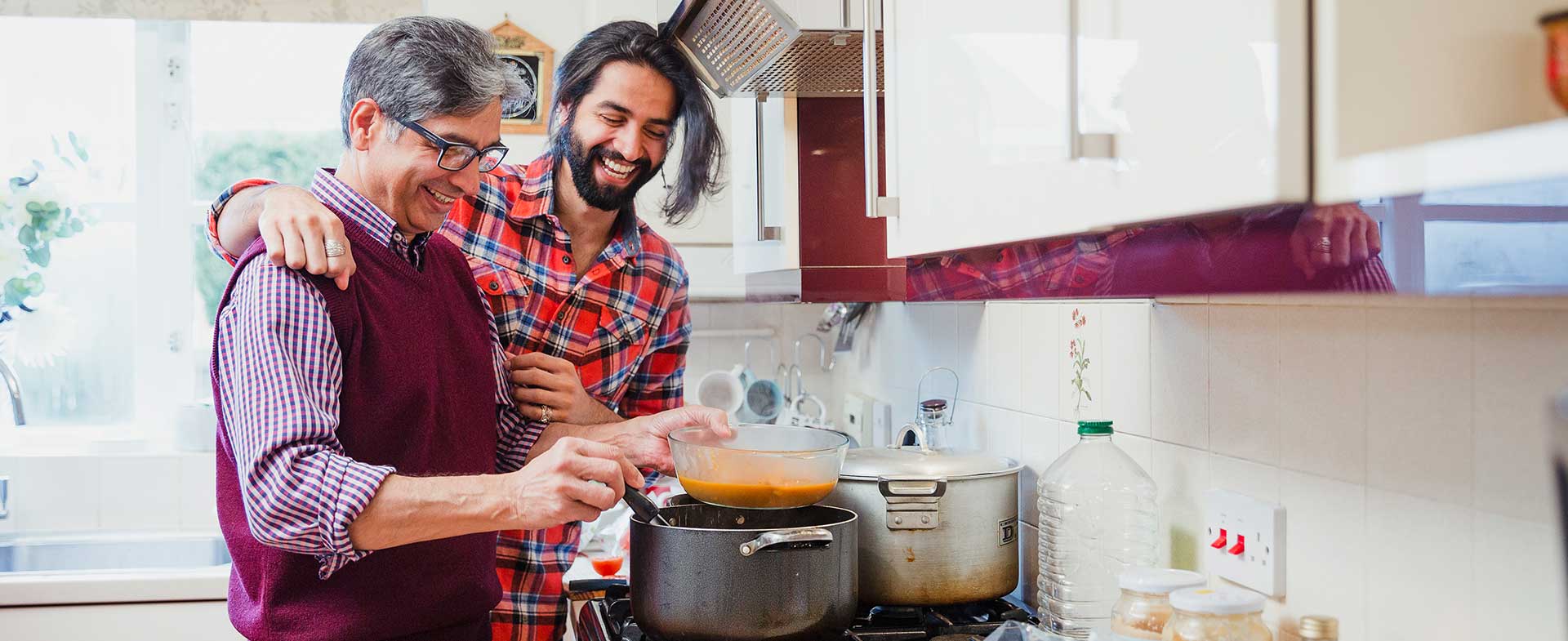Doctors diagnose an estimated 1.5 million Americans with diabetes each year. When you or someone you love receives a diabetes diagnosis, it can be overwhelming. People know that managing diabetes will involve a change in lifestyle and will very likely impact the entire family.
"The first reaction is fear and panic — both for the patient and their loved ones," says Maria Stawarz, a registered dietitian and certified diabetes educator at Henry Ford Health. But when families step back, take a deep breath and learn how to best manage the condition, they realize a diabetes diagnosis could lead to positive lifestyle changes for the whole family.
Diabetes Support 101
When someone you care about is diagnosed with diabetes, they will need your help and support. You can be with them every step of the way, from developing a healthy meal plan to attending their doctors' appointments. You might even just be there to listen.
Not sure what that support looks like? Never fear. We've got seven strategies to help you "be there" for your loved one as he or she navigates a new diabetes diagnosis.
- Educate yourself: When it comes to diabetes management, there are a slew of myths and misconceptions . The more you understand about diabetes, the better equipped you'll be to support the person who has the disease. Once you know the facts about diabetes, you can model healthy behaviors like keeping nutritious snacks on hand, going for a nightly stroll after dinner or splitting a meal when you dine out.
- Choose healthy foods: While there is no "diabetes diet," you can put together meals that focus on vegetables, whole grains, fruits, low-fat dairy and lean protein. Eating this way not only helps keep blood sugar levels steady, but it can also help you and your loved one shed excess pounds and avoid other health problems.
- Play with portions: If you're preparing food for the whole family, use the plate method for meal planning. "Take a 9-inch plate, fill half with vegetables and the other half equal parts starch and lean protein. Then add a piece of fruit," suggests Stawarz. This method helps ensure the whole family is getting a variety of different foods from each food group — and it naturally helps limit portions.
- Ask how you can help: Instead of assuming you know what your loved one needs, ask how you can best help him or her succeed. "The key is letting your loved one know that they're not alone in this process," Stawarz says. Ask things like, "Do you need me to remind you to take your medication?" "Do you want me to help you check your blood sugar?" or "Would you like me to go with you to your next doctor's appointment?"
- Show up: When you accompany your loved one to diabetes management classes or their doctor appointments, you're not only showing your love, but you can also act as an extra set of eyes and ears. You can help them remember and understand the information provided. "This can help motivate them to keep working on taking care of their diabetes," says Stawarz.
- Get moving: Physical activity plays a key role in managing diabetes. But sticking with a regular exercise routine can be challenging, especially for people who don’t like to exercise. Exercising alongside your loved one — even acting as a sort of accountability partner — can help both of you stay on track. You might consider joining a gym together or going to the mall to walk.
- Keep it positive: "Diabetes is not a death sentence," says Stawarz. "It doesn't mean your loved one is going to go blind, lose a leg or go into kidney failure." In fact, there are more tools and resources than ever before to help people manage diabetes. Well-controlled diabetes can reduce your loved one’s risk for complications.
Managing Diabetes Over The Long Haul
Taking care of diabetes can be hard work. People have to watch what they eat, squeeze in regular exercise, monitor their blood sugars and take medication when necessary. Juggling all of these health-related balls is a full-time job — and it never ends. If you're the one watching from the sidelines, you may feel useless.
"The best thing you can do is offer support without unwanted advice," says Stawarz. See your husband opening the cookie jar? Resist the urge to call him out on it. Notice that your sister missed her afternoon walk? Ask if she wants to join you for a stroll after dinner.
While it's true that maintaining steady blood sugar levels plays a key role in your loved one's health and well-being, lecturing or acting as the food police can backfire. Instead, encourage your loved one to ask for a referral to a diabetes educator and be a pillar of support when they ask for it. For recipes, tips and advice, visit the American Diabetes Association for a good online resource.
To find a doctor, registered dietitian or diabetes educator at Henry Ford, visit henryford.com or call 1-800-HENRYFORD (436-7936).
Maria Stawarz, RD, CDE, is a registered dietitian and certified diabetes educator. She sees patients at Henry Ford Medical Center - Livonia and Henry Ford Medical Center - Columbus in Novi.



